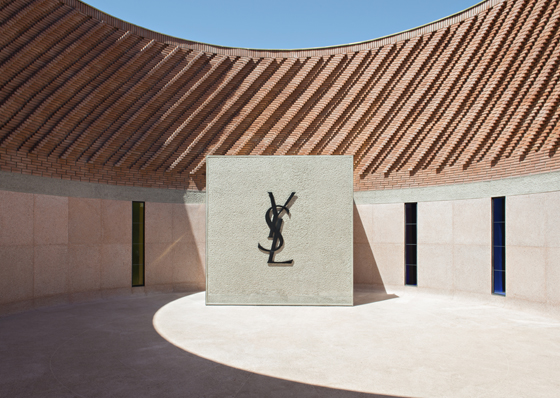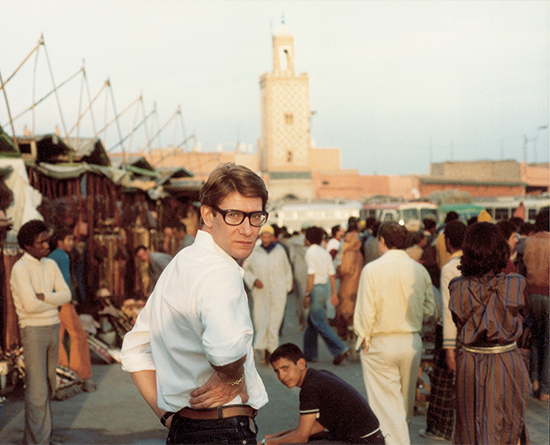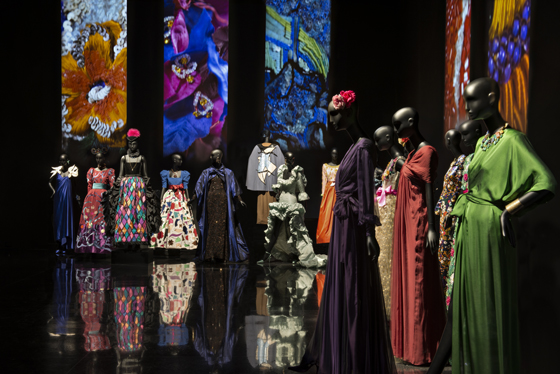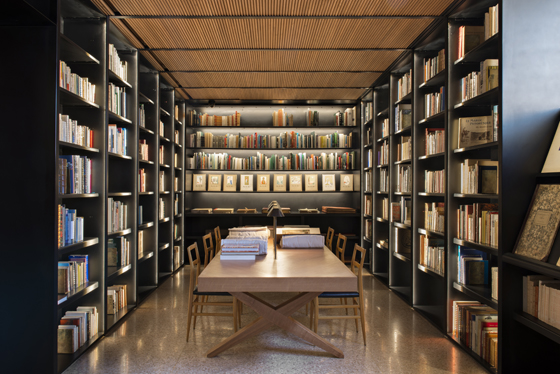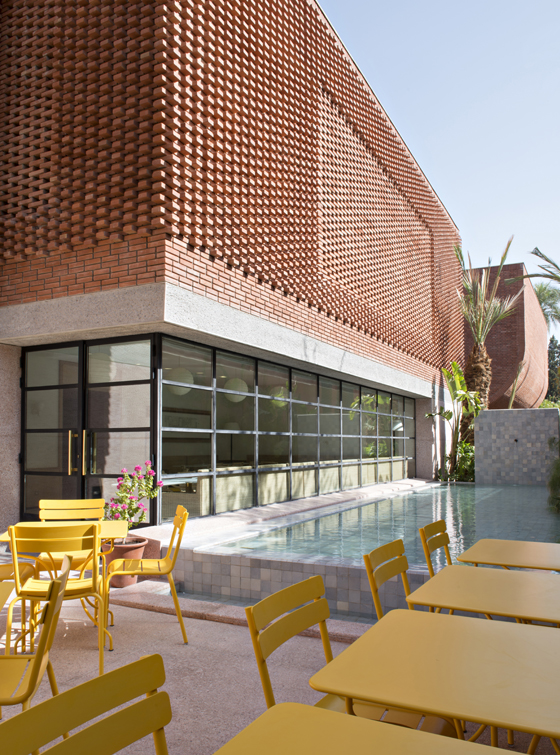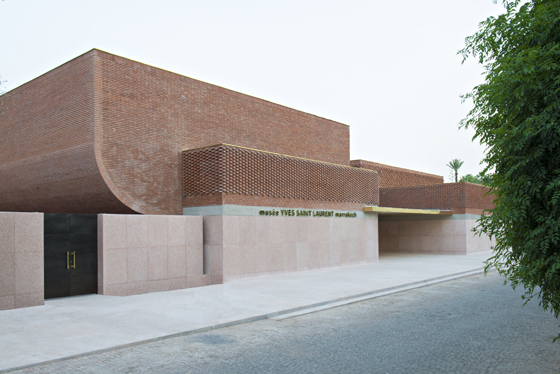New Museum Africa / YSL Museum
Texto por TLmag
Brussels, Bélgica
30.07.18
The Musée Yves Saint Laurent Marrakech is an homage to person and place.
Patio circulaire, mYSLm Photo: Nicolas Mathéus © Fondation Jardin Majorelle
House museums provide rare insight into the life and work of their famous inhabitants. In many cases, these buildings are themselves immortal testaments to the ideals put forward by their historic residents. But many also stagnate as frozen vestiges of the past. Mirroring a sister institution in Paris, the new Musée Yves Saint Laurent Marrakech (MYSLM) has taken on a far more dynamic mandate. Rather than freeze-frame the Jardin Majorelle–Yves Saint Laurent’s urban oasis–the museum–located in proximity–operates as an exhibition hall, cultural centre, and research library. Exhibitions on the seminal French fashion designer’s work are placed in dialogue with a series of shows highlighting likeminded–international and local–talents, including Leila Alaoui and Robert Wilson; MYSLM Chief Curator Björn Dahlström talks to TLmag.
Yves Saint Laurent, Place Djemaa El Fna Photo: © Reginald Grey
TLmag: Building on Yves Saint Laurent's legacy and his ties to Marrakesh, what inspired the idea of establishing a museum in this context?
Björn Dahlström: Saint Laurent acquired his first Marrakesh home in 1966. Having been born in Oran, Algeria, he was returning home, to a certain degree. The city became an important source of inspiration; from where he designed new collections but also established lifelong friendships. Working closely with the Fondation Pierre Bergé, Yves Saint Laurent and the Musée Yves Saint Laurent Paris, the project was initiated so as to highlight these connections. While our Parisian counterpart holds much of the archive, conducts textile restorations and focuses its exhibits on the process behind the creation of a collection, we are more of a multivalent cultural venue–the first of its kind in Marrakesh–that explores the designer’s inspiration.
Vue de la salle YSL /View of the YSL Room (top); In the hall of the museum, the Senoufo Bird, the first acquisition by Pierre Bergé and Yves Saint Laurent in 1960 (above) Photos: Nicolas Mathéus © Fondation Jardin Majorelle
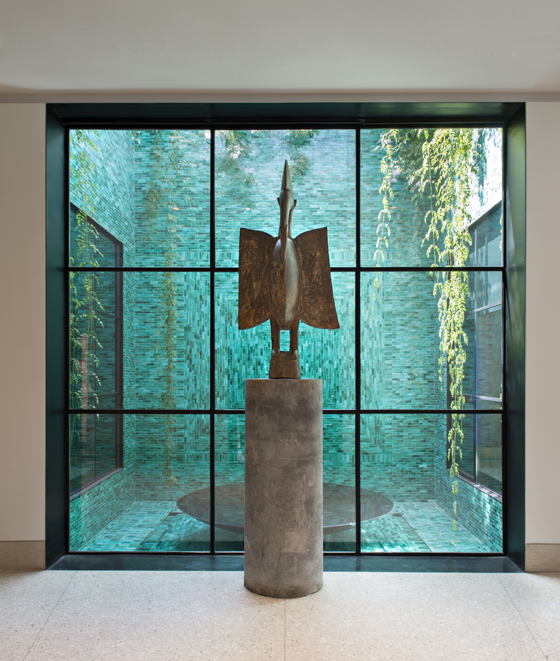
Vue de la salle YSL /View of the YSL Room (top); In the hall of the museum, the Senoufo Bird, the first acquisition by Pierre Bergé and Yves Saint Laurent in 1960 (above) Photos: Nicolas Mathéus © Fondation Jardin Majorelle
×TLmag: What programming do you have in store?
B.D.: Our active schedule of temporary exhibitions will reflect Saint Laurent’s interest in different artistic disciplines and themes; a mix of fashion, photography, and contemporary art. Several site specific projects that have been commissioned by the museum are rooted in and deal with the immediate context of Morocco. The museum’s auditorium will also host concerts, performances, film screenings and other events. As most of our visitors are international, we are also working closely with schools and community centres to develop a local audience.
Facade of the museum, all three photos by Nicolas Mathéus © Fondation Jardin Majorelle
TLmag: How does the architecture of the museum evoke Yves Saint Laurent’s interests?
B.D.: Saint Laurent’s long time business and life partner Pierre Bergé briefed Paris-based architectural firm Studio KO to design a building that was simultaneously contemporary and Moroccan; a reflection of the designer’s transcendent taste. Well proportioned curves and cube-shaped volumes are harmoniously combined. The setting and open structure alignment of local bricks evokes the warp and weft of woven fabric. The predominance of rose-coloured granite–set alongside the red bricks–perfectly situates the building within its environment. Marrakech is often referred to as the “Ochre City.”
Interview by Adrian Madlener

